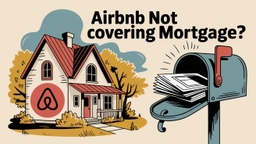As a real estate investor, one of the biggest decisions you’ll face is whether to offer short-term or long-term rentals. Both types of rental properties have their own advantages and disadvantages, and it’s important to consider them carefully before making a decision. In this blog post, we’ll take a deep dive into the pros and cons of short-term and long-term rentals.
Short-Term Rentals
Short-term rentals, also known as vacation rentals, are properties that are rented out for a period of less than 30 days. This type of rental has become increasingly popular in recent years, thanks in part to the rise of online platforms like Airbnb, HomeAway, and VRBO.
Pros
- Higher Rental Rates: One of the biggest advantages of short-term rentals is that they can command significantly higher rental rates than long-term rentals. This is because vacationers are willing to pay a premium for a unique and comfortable experience, and are often willing to splurge on a nicer property.
- Flexibility: Short-term rentals offer a great deal of flexibility to property owners. You can choose to rent out your property for just a few weeks at a time, or for longer periods during peak seasons. This allows you to maximize your rental income and use the property for personal vacations during off-seasons.
- Lower Wear and Tear: Short-term rentals typically experience less wear and tear than long-term rentals. Vacationers are more likely to treat the property with respect, as they are only there for a short period of time and want to make the most of their stay. This means you’ll spend less money on maintenance and repairs over time.
Cons
- High Turnover: One of the biggest disadvantages of short-term rentals is the high turnover rate. You’ll need to clean and prepare the property for each new guest, which can be time-consuming and costly. You’ll also need to be available to handle any issues that arise during each guest’s stay.
- Seasonal Demand: Short-term rentals are often in high demand during peak seasons, but can be difficult to rent out during slower periods. This means you’ll need to plan your rental strategy carefully to maximize your rental income throughout the year.
- Legal Requirements: Many cities and municipalities have strict regulations on short-term rentals, and it can be difficult to keep up with the constantly changing legal landscape. You’ll need to stay informed and ensure you’re in compliance with all local laws and regulations.
Top 200 US Airbnb Rental Markets - 2026
Instantly compare top 200 short-term (Airbnb) rental markets in the US







